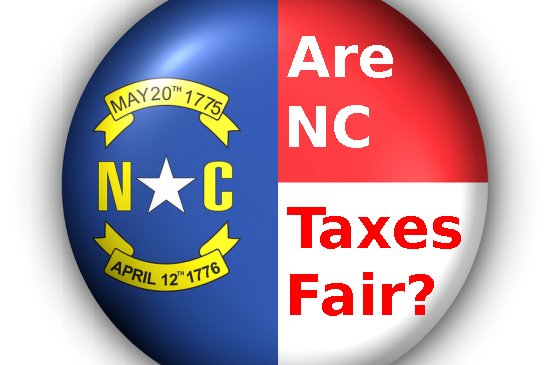
The research covered non-elderly taxpayers – so we're looking at family income and taxes for those age 55 and under. Here are the findings:
- Those that earn less than $18,000 pay 9.2% on average
- Those that earn $18,000-$30,000 pay 9.1% on average
- Those that earn $30,000-$49,000 pay 9.2% on average
- Those that earn $49,000-$80,000 pay 8.8% on average
- Those that earn $80,000-$163,000 pay 7.8% on average
- Those that earn $163,000-$376,000 pay 6.8% on average
- Those that earn $376,000 and more pay 5.3% on average
The lowest income earners paid nearly 500% more than the highest earners when it came to sales and excise taxes. This is likely caused by lower earners having to spend 100% (or more) of their income and being unable to save. The richest usually don't spend all their earnings and so the cumulative sales tax represents a much smaller percentage of their income.
Personal income taxes represent the smallest share of the lowest income earner's wages taking up less than 1% of their wages. In contrast, the top earners pay 4.4% in state income taxes. Property taxes also represent a huge burden on low-income earners, eating up 2.5% of their pay. Top earners pay just 1.4% of income toward property taxes. Even assuming that top earners have more costly properties (and perhaps multiple properties), the difference is staggering.
The Institute also evaluated North Carolina's tax policies and gave our state a thumbs up on its child tax credits and the fact that groceries are exempt from sales taxes. In the downside, the ITEP looked down on these aspects of NC taxation:
- Personal income tax rates are now flat (this was changed recently from a progressive rate)
- Local and state tax sales taxes are higher than many other states
- Local sales taxes do not exempt groceries
- Failure to provide refundable Earned Income Tax Credit
- Failure to give a property tax break to low-income earners
- Failure to make the Child Tax Credit refundable
- Made electricity fully taxable under state and local sales tax rates
In short, recent changes to the North Carolina tax code for state, local and sales taxes are hitting the lowest income earners the hardest. But when comparing NC to other US states, we don't look so bad. The ITEP ranks us as the 31st worst state for unfair state and local tax policies. So the good news is, while NC taxes aren't great for lower income earners, the fact is, it could be worse.
Please read the original post on our affiliate site, BillsBills.com
